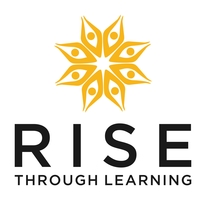F.A.Q.
Do you accept insurance?
Unfortunately, we are unable to accept insurance. If you are experiencing financial difficulties and are in need of low cost mental health resources, please contact us for referrals.
What are your fees?
Our fees for the 2018-2019 school year average $95/hour. We also offer packaged, discounted pricing options for most of our services. Please contact us here for more information.
Where do services take place?
All in person services occur with your home or at a public location of your choosing.
*If travel time exceeds 45 minutes each way, a small additional travel fee may apply.
What are your payment options?
We currently accept payment via QuickPay with Zelle, cash, check, online using any debit or credit card, money order, or in person using any credit or debit card.
What are evidence based interventions?
Evidence based interventions are treatments that have been proven effective through research. Evidence based interventions are likely to change target behavior if implemented with integrity. Our specialists have been trained in using evidence based interventions. At Rise Through Learning, if a specific intervention is not working we change the intervention to ensure growth. We have access to many evidence based interventions, and we work to find the right fit for each child.
What is the difference between a school psychologist and a clinical psychologist?
According to the National Association of School Psychologists, which is quoted as follows, “School psychologists receive specialized advanced graduate preparation that includes coursework and practical experiences relevant to both psychology and education. Graduate preparation develops knowledge and skills in: data collection and analysis, assessment, progress monitoring, school-wide practices to promote learning, resilience and risk factors, consultation and collaboration, academic/learning interventions, mental health interventions, behavioral interventions, instructional support, prevention and intervention services, special education services, crisis preparedness, response, and recovery, family-school-community collaboration, diversity in development and learning, research and program evaluation, professional ethics, school law, and systems. School psychologists help schools and successfully: improve academic achievement, promote positive behavior and mental health, support diverse learners, create safe, positive school climates, strengthen family-school partnerships, improve school-wide assessment and accountability monitor individual student progress in academics and behavior. All children and youth can face problems from time to time related to learning; social relationships; making difficult decisions; or managing emotions such as feeling depressed, anxious, worried, or isolated. School psychologists help students, families, educators, and members of the community understand and resolve both long-term, chronic problems and short-term issues that students may face. They are a highly skilled and ready resource in the effort to ensure that all children and youth thrive in school, at home, and in life.”
According to the American Psychological Association, which is quoted as follows, “Psychologists trained to provide clinical services work in research, education, training and health sectors. Working with numerous populations, they focus on individual differences, normal and abnormal behavior, mental and emotional health, healthy behaviors and mental disorders and their prevention.” Some clinical psychologists practice with a Master’s degree, while most practice at the Doctoral level. Most school psychologists practice with an Education Specialist degree, which typically requires three years of graduate school to complete.
What is the difference between life coaching and clinical therapy?
The International Coach Federation’s definition of coaching quoted in part which is as follows: Life coaching and clinical therapy are in some ways two sides of the same coin—they share similar attributes, but may utilize different approaches.
The main difference between life coaching and therapy is that the former focuses on the present, providing insight and tools to actualize goals set by the client. Life coaching clients are emotionally well and work with the coach in a collaborative fashion to learn strategies and achieve personal goals.
Therapy, on the other hand, is more of a health care utility that may focus on past traumas and the past in general. The focus is on the recognition, diagnosing and treatment of mental health disorders. If Kristen believes you may benefit from receiving clinical therapy, she will refer to you to an appropriate clinician.
What is the difference between a 504 plan and an IEP?
A 504 plan states how a child will have access to their learning environment. A 504 plan often involves accommodations and modifications to the learning environment. A student may also receive related services, such as speech therapy or social work. Students under a 504 plan do not receive direct instruction from a special education teacher.
An IEP is often more complex than a 504 plan, and provides individualized special education and related services, in addition to possible accommodations and modifications to the learning environment. Students must qualify under one or more of the fourteen special education categories, as stated in the Individuals with Disabilities Education Improvement Act (IDEIA).
Our school psychologists on staff can provide detailed information regarding each plan, including who may qualify and what the eligibility process entails.
What is executive functioning?
Executive functioning (EF) is a high level cognitive process allowing us to plan and execute activity. EF often involves the following skills: planning, organizing, impulse and emotional control, task initiation, self-monitoring, working memory, and flexible thinking. Children who have EF difficulties may have trouble setting and working through goals, organizing materials and activities, remembering instructions, and controlling their emotions and actions. Our school psychologists on staff have access to evidence based interventions to assist children with the above mentioned difficulties.

